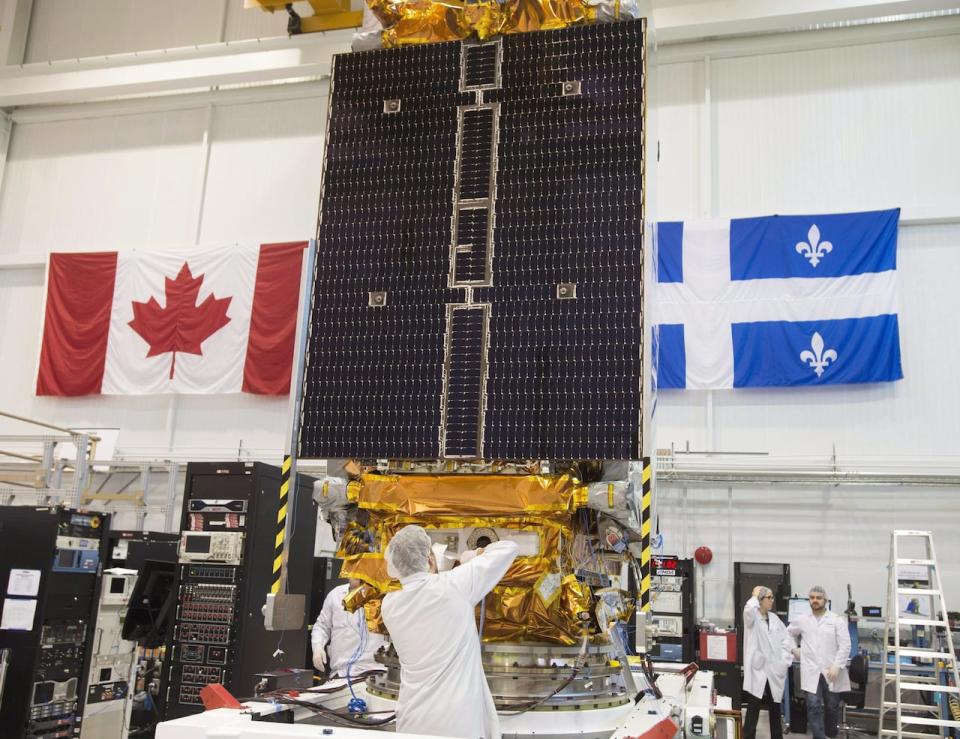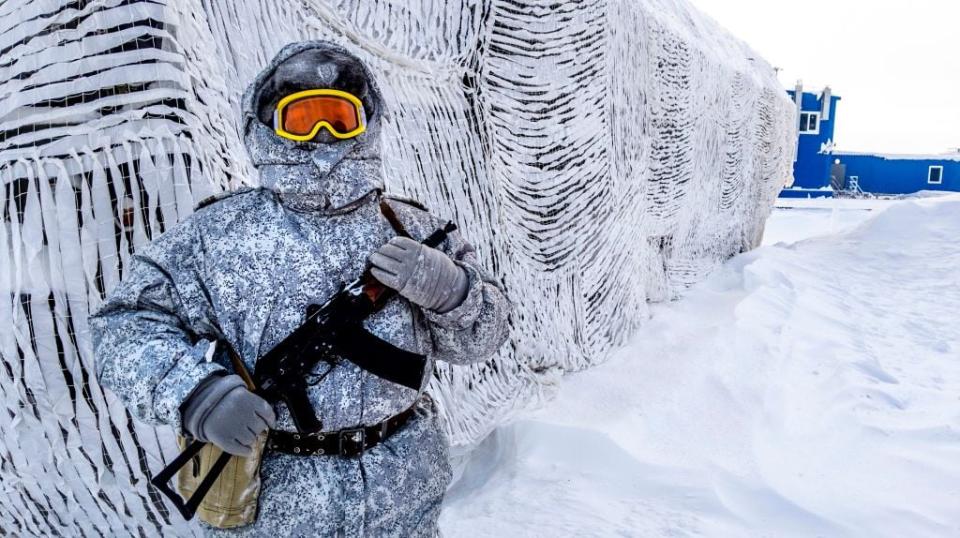The Canadian military could have modern satellite coverage in the Arctic a decade sooner than expected if the federal government is willing to follow the lead of other countries and embrace commercial options in space, a House of Commons committee heard Monday.
Mike Greenley, CEO of MDA Canada, told committee members that Canada has fallen behind the rest of the world from “a military space perspective” and is not working effectively with companies in the aerospace sector.
“As a result, our relevance in a rapidly changing geopolitical world is declining, and with it our ability to protect and defend Canadians,” said Greenley, whose company is the country’s largest in the space sector, with more than $ 1 billion. in turnover per year.
One of the pressing issues facing defense officials is the rapidly aging chain of government-owned RADARSAT Constellation satellites.
The federal Auditor General warned in late 2022 that these satellites could exceed their useful life by 2026 and that their replacement – known as the Defense Enhanced Surveillance from Space Project (DESSP) – is still years away from the ground.
The Liberal government promised dedicated military surveillance satellites in its 2017 defense policy and reiterated the promise in its latest strategy document — but the Defense Department’s project status summary shows the multibillion-dollar program won’t start until “after 2035.”
Greenley said the United States and Britain have chosen to build only the space equipment they absolutely need, while buying the rest from the private sector.
Canada must start doing the same to avoid long delays in deploying crucial military capabilities, he said.

Technicians put the finishing touches on the second of three Constellation satellites at the MDA facility on June 21, 2018 in Montreal. (Ryan Remiorz/The Canadian Press)
“Canada needs communications in the North, Canada has identified procurement expenditures to acquire space capacity for communications in the North around 2038,” Greenley said.
“Meanwhile, Telesat will launch a global communications capability in 2027 with satellites built by MDA Space. If we had a conversation today, the potential could be configured to deliver military communications in the Arctic as a commercial service a decade faster – a decade faster. “
The Commons defense committee is examining how the changing geopolitical and military dynamics on Earth are reflected in space.
Reports suggest that Russia is planning to launch a nuclear bomb into orbit
Of particular concern are reports that Russia plans to launch a nuclear weapon into orbit designed to destroy satellites.
A top U.S. State Department official told a Washington-based think tank audience last week that the Biden administration is concerned about a particular program, which Moscow claims is simply a scientific program to test electronics.
“The United States is extremely concerned that Russia is considering the inclusion of nuclear weapons in its counter-space programs, based on information deemed credible,” said Mallory Stewart, assistant secretary for arms control, deterrence, and stability.


A soldier holds a machine gun as he patrols Russia’s northern military base on Kotelny Island, beyond the Arctic Circle, on April 3, 2019. (Maxime Popov/AFP/Getty Images)
She spoke at the Center for Strategic and International Studies (CSIS) on Friday.
“The United States has been aware of Russia’s pursuit of these types of capabilities for years, but only recently have we been able to more accurately assess their progress,” Stewart said.
She went on to say that the capability is not active and has not been deployed, but that Russia’s pursuit of this capability is nonetheless deeply troubling.
“There is no immediate threat.”
Stewart’s comments were recently echoed by Brig. Mike Adamson, the commander of the newly created 3rd Canadian Space Division.
He said the reports are troubling and that the Canadian military is working with the American Space Force and Space Command to understand the technology and its implications.
“We do not believe there is an imminent threat at this time,” Adamson told the House of Commons defense committee last week.
‘It’s probably worth mentioning too [that] International law prohibits the placement of nuclear weapons in space. So this would be a direct violation of that and certainly contrary to the accepted standards of behavior that we would expect from any spacefaring nation.”
For the past seven years, the Canadian military has been looking for ways to protect its satellites from being shot down or disabled.
Prior to the threat of a nuclear device in space (which could seriously disrupt and even destroy a number of satellites), Western militaries had turned their attention to ground-based missiles developed by Russia and China to disable key communications and command equipment. in orbit.